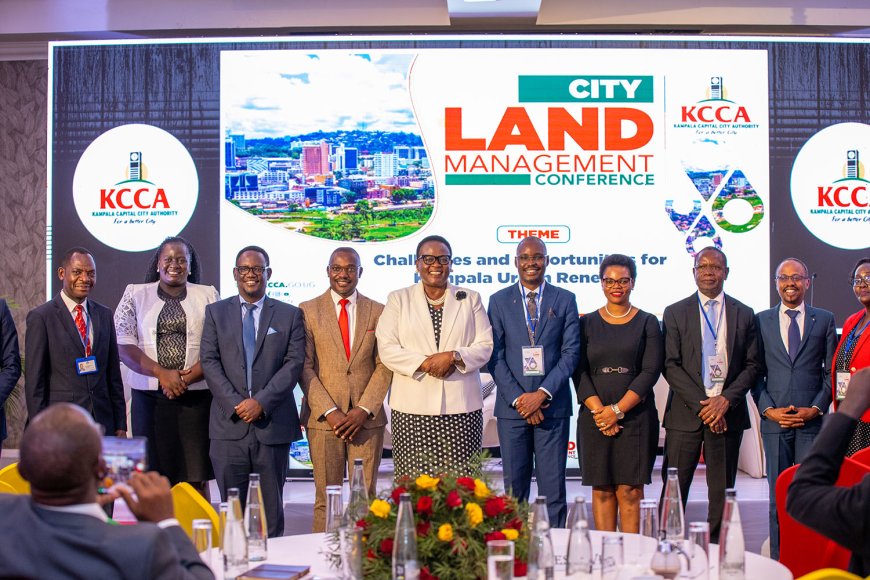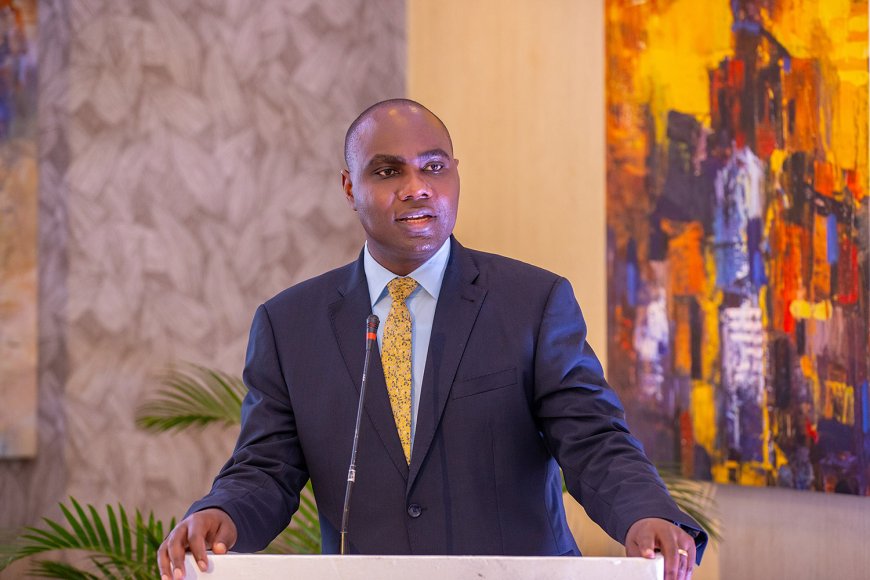Land Management Think Tank To Be Established To Guide Responsible Urban Land Use For Kampala

Land management stakeholders in Kampala have taken a crucial step toward addressing the city's pressing land management challenges by resolving to establish a dedicated Land Management Think Tank for Kampala.
They agreed that the establishment of a Land Management Think Tank is a significant stride towards addressing Kampala's land-related challenges and securing a brighter future for the city.
The decision was made during the recent Kampala City Land Administration and Management Conference 2023, held at the Mestil Hotel on Wednesday. The event was organized by Kampala Capital City Authority (KCCA) under the theme “Challenges and Opportunities for Kampala Urban Renewal”
Dorothy Kisaka, the Executive Director of the Kampala Capital City Authority (KCCA), presented this innovative proposal to tackle the city's land management issues.
In her address, Kisaka emphasized the pivotal role that land plays in Kampala's development and future. She stressed the significance of effectively managing this valuable asset, not only for the current generation but also for future ones.
"The primary goal we aim to achieve is the creation of the Land Management Think Tank. This think tank will guide us into the future, not just for our lifetimes but for our grandchildren and beyond," Kisaka stated.
She acknowledged the role of General Salim Saleh in highlighting to KCCA management team the importance of the effective management of land as a key factor of production.
The proposed think tank will serve as a collaborative platform for experts and stakeholders to formulate policies and strategies that promote responsible land use. It will also address critical issues such as preventing illegal land grabs and safeguarding vital areas like wetlands, schools, and health facilities.
Kisaka's proposal garnered substantial support from attendees, including government officials, city administrators, the Uganda Land Commission, and representatives from the Buganda Kingdom.
Kabuye Kyofatogabye, the state minister for Kampala Capital City and Metropolitan Affairs, underscored the inextricable link between land and the creation of a livable city.
“Land is fundamental for infrastructure development, road networks, urban forests, and recreational parks. It is important to preserve land for educational institutions and promoting vertical construction to protect agricultural land,” Kyofatogabye said.

Henry Musasizi, the Minister of State for General Duties, Ministry of Finance, Planning and Economic Development pictured above, raised important questions about land availability for expansion and recreational purposes, as well as their financial implications. He astutely pointed out that free land is no longer available, highlighting the need for careful planning and management.
Kampala Lord Mayor Erias Lukwago emphasized the necessity of protecting all public land entrusted to the government and voiced concerns about land distribution.
He stated, "There is a challenge with land in schools, as land entrusted to the Uganda Land Commission is being leased to individuals. Institutions should operate with the highest level of trust, and leases should not be permitted in wetlands, schools, or health facilities."
The Deputy Katikiro of the Buganda Kingdom, Robert Waggwa Nsibirwa, stressed the importance of enhancing land management as a finite resource. He encouraged productive discussions and collaboration to benefit the city's development and offered the Buganda Kingdom's support by providing land. The Buganda Kingdom is one of the largest landowners in Kampala.












